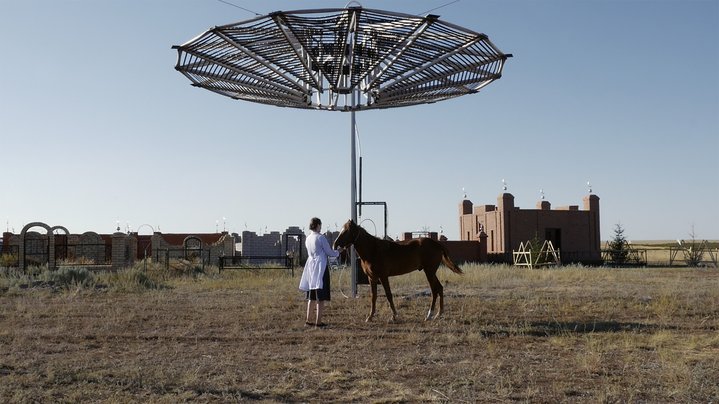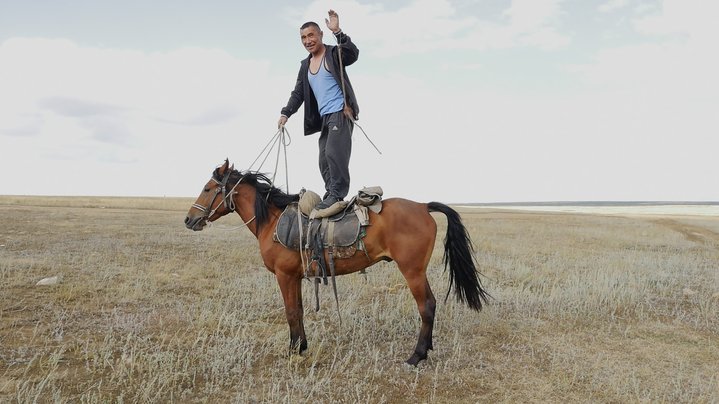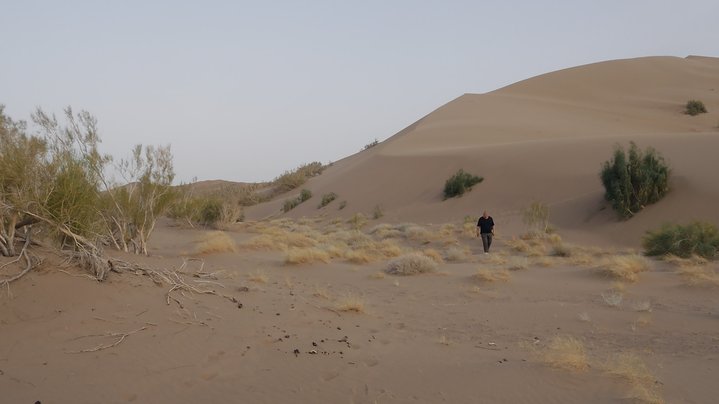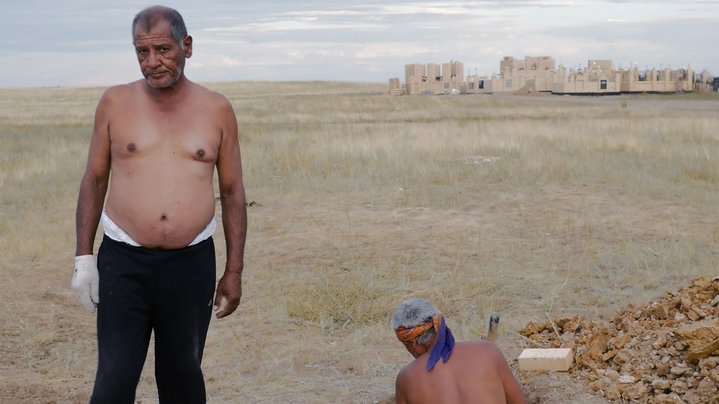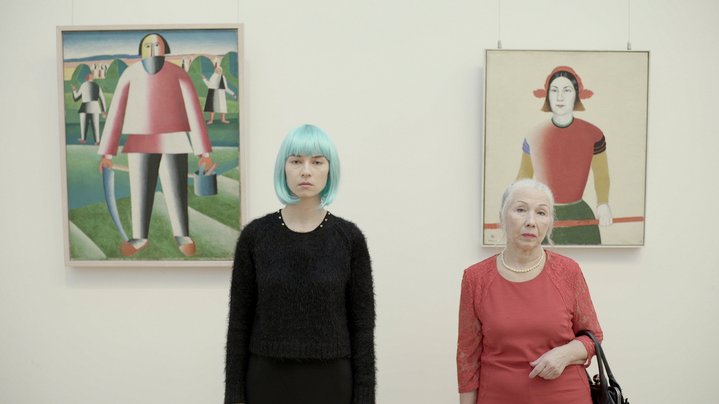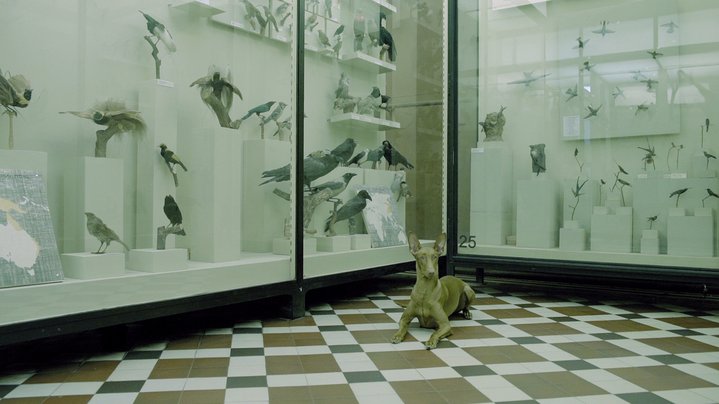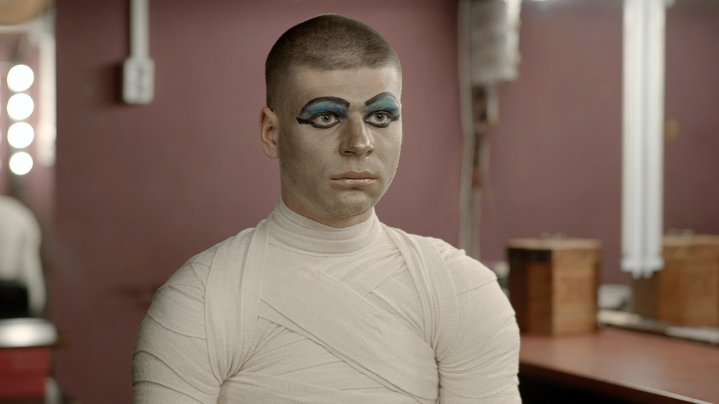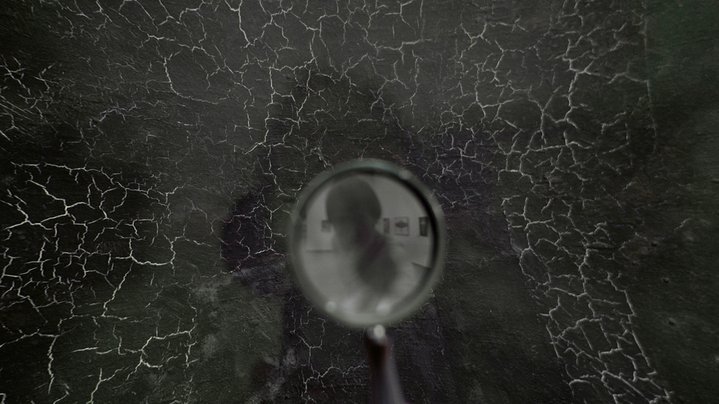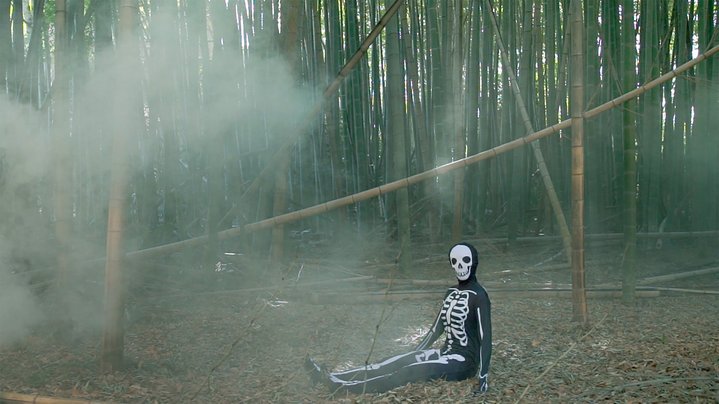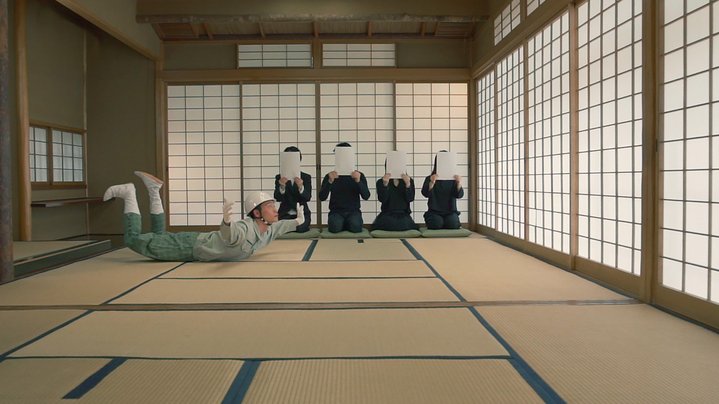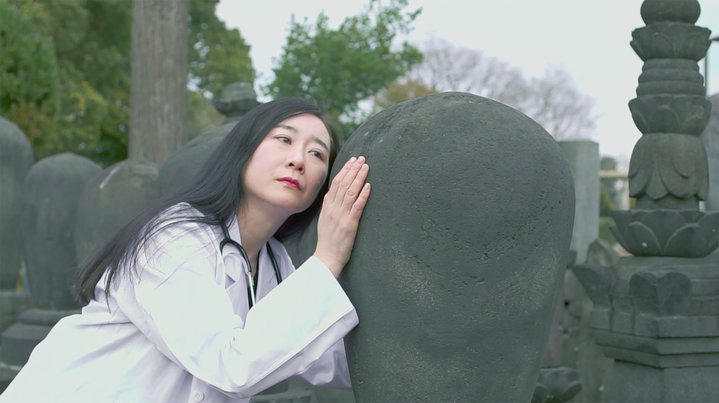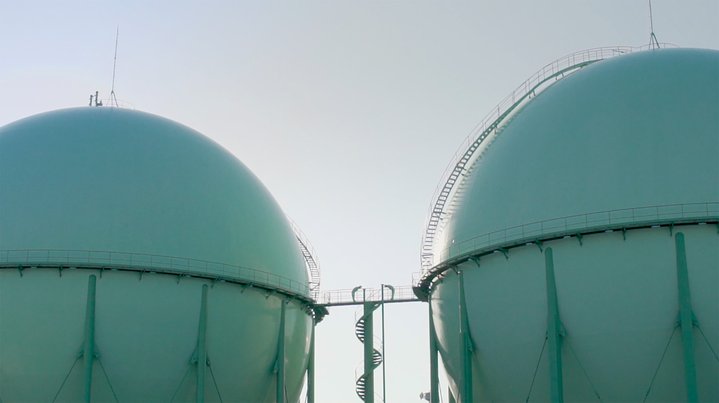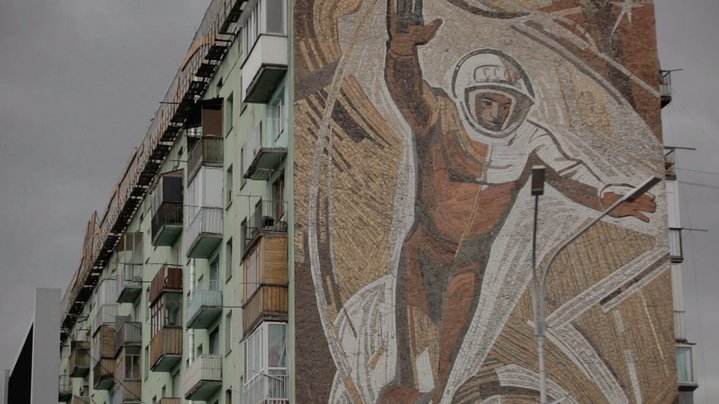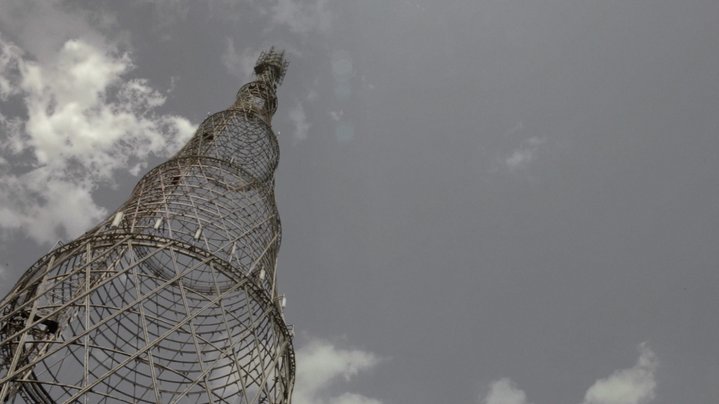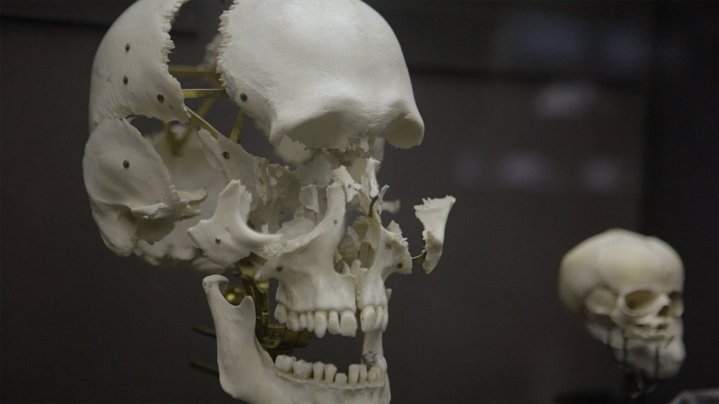Anton Vidokle: staring into space
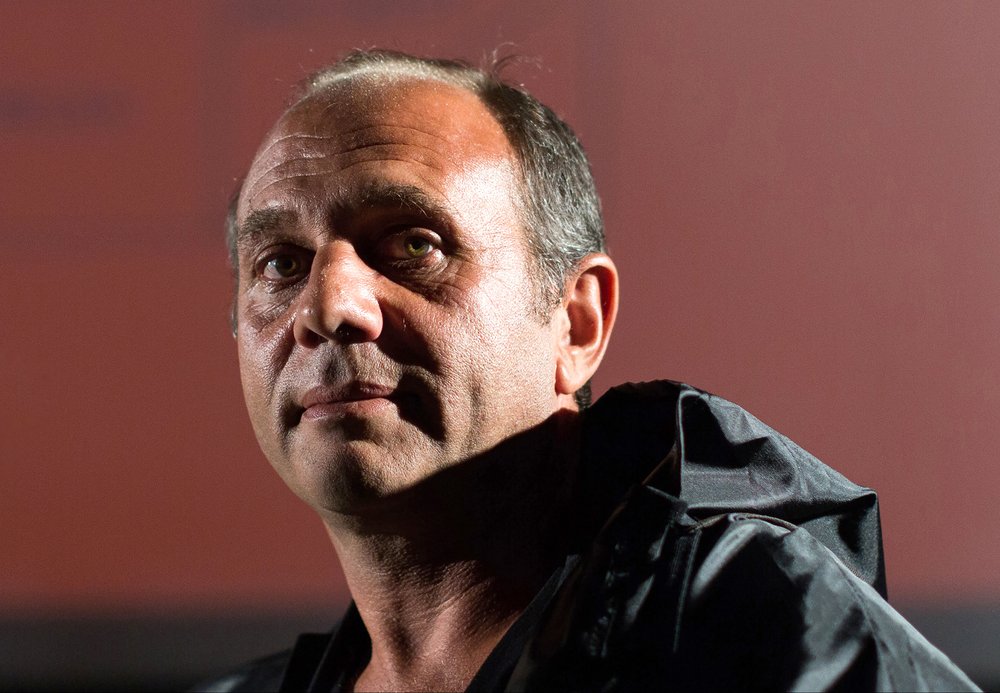
The Russian-American artist fascinated by Russian Cosmism and the founder of e-flux is unveiling solo exhibitions at the State Tretyakov gallery in Moscow and in MHKA in Antwerp.
Anton Vidokle’s film ‘The Communist Revolution Was Caused By The Sun’ (2015) opens with a guided meditation and a panoramic view of a dilapidated factory. The camera hovers around a red star, marking the scene as a (post-)Soviet space, while a voice instructs viewers to quiet their mental chatter by drawing their attention inward. In the scenes that follow, the film introduces what Vidokle has called “a genuine mystical object of the Soviet era”: an aero-ionizing device called the ‘Chizhevsky Chandelier’. Designed by Soviet biophysicist Alexander Chizhevsky (1897–1964), it creates an electric field that changes the valence of air molecules from positive to negative. Chizhevsky was permitted to carry out such experiments from his prison cell near Karaganda, Kazakhstan (where he was exiled and the Vidokle’s film was also shot), a “jailhouse sanatorium”, as one of the characters in the film calls it. This effect revitalizes humans, as the change in air quality mimics that on the top of a mountain or at the seashore. The chandelier reproduced this effect indoors. They were once installed in the offices and even cars of Soviet officials.
This film will be front and centre in ‘Anton Vidokle. Citizen of the Cosmos’, an exhibition that opens on February 4 and runs through April 3 at the State Tretyakov Gallery in Moscow. It will feature a trilogy of films, collectively titled ‘Immortality for All’, in which Vidokle explores the propositions and potentialities of Russian cosmism. At their worst, the films are frustratingly obscure; at their best, hauntingly poetic.
Vidokle (b. 1965 in Moscow), is a writer, artist and curator based in New York. He is perhaps best known as the founder of the publishing platform and curatorial space e-flux, though his fascination with cosmism has continued for over a decade. While the trilogy has been shown at venues globally, the Tretyakov’s rendition, curated by Kirill Svetlyakov, marks its Moscow debut. “As it turns out, cosmism is as little remembered in Russia, as it is the rest of the world,” Vidokle says, with a faint grin.
The history of Russian cosmism can be traced back to the mid-nineteenth century and Nikolai Fedorov (1829–1903), an eccentric Russian librarian and religious thinker. He produced a philosophical project that he hoped would intervene into one of humanity’s great equalizing (and limiting) forces — death — to harness the potential of immortality. Though Fedorov’s writings were only first published posthumously by his students in 1906 under the generic title ‘Philosophy of the Common Task’, the wildly imaginative contents inspired several generations of artists, writers and scientists in Russia and the Soviet Union, as a current exhibition at the Russian State Museum in St. Petersburg strives to demonstrate.
Vidokle is drawn to how and why Fedorov, who was monarchist, envisioned a world that, nevertheless, resonated with aspects of communality that undergirded Marxism. Vidokle sees filmmaking as part of his research process, but ultimately considers them creative rather than scholarly. “I’m not sure Fedorov would even agree me,” he says.
Vidokle’s encounter with Russian cosmism came about felicitously. “I was having a conversation with Boris Groys, but the things he described were so unusual — blood transfusions, technological resurrections, ecetera, that I thought he made them up. Boris mentioned, for example, that Malevich’s sculptures, the Architektons, were actually intended as designs for orbital stations, which would be used as cemeteries where corpses would be preserved outside of Earth’s gravity, in the coldness of outer space, for future resurrection. But, a few years later, I was asked to interview artist Ilya Kabakov and he mentioned cosmism in relation to his work. That’s when I realized that this has a history.”
Describing his recent film ‘Citizens of the Cosmos’, which was mostly shot in Japan and is entirely in Japanese, Vidokle noted that one of his current curiosities has been to “test” the proclaimed universality of cosmism, the belief in immortality and resurrection for all. One of the earliest translations of Fedorov’s texts dating back to the mid 1940s was in Japanese, which circulated in a Russian expat community. Vidokle wondered “what would have happened if these ideas took significant hold in Japan? What would Japanese cosmism look like today?” So far, Vidokle isn’t sure. Cosmism, after all, stems from a particular cultural and historical context. “It’s more complicated than I thought,” he admits, “and there is still something left to process about its specificity to Russia.”
Asked about what he hopes viewers will gather from his films, he speaks about how the mutually creative and utilitarian capacities of art and technology tend to be obscured in today’s technophilic world. “It is interesting to note that sometimes literature and art actually anticipate new technology. For example, Fedorov writes about space flight in the 1860s, and Konstantin Tsiolkovsky (1857–1935), who was a kind of student of Fedorov, develops them as mathematical equations. Then, the next generation transformed those equations into an engineered methodology that actually ended up sending humans into outer space. So, sometimes the humanities create an impetus for others with more scientific or technical backgrounds to materialize those ideas in a utilitarian sense. There is a belief today, especially in the United States, that technology leads society in a certain way because it creates possibilities that are settled culturally and then filled in with certain content. But, it also works the other way around: art creates the imaginary new realities that science and technology pursue.”
To resurrect theories of cosmism is to resurrect a body of work and group of thinkers lost to time, just as many indigenous ways of knowing and questioning the world have disappeared to history, to “enlightenment”, to colonialism, capitalism or communism. Vidokle’s current film project explores immortality through the ‘Epic of Gilgamesh’, an epic poem stemming from five Sumerian texts that date from ca. 2100 BC. This is “arguably the first literary exploration of immortality,” Vidokle says. “Fedorov, by the way, also wrote about the study of ancient Mesopotamia,” he adds. “But it was not his best work – very speculative.”
Anton Vidokle. The Citizens of Cosmos
Moscow, Russia
February 8 – April 3, 2022






